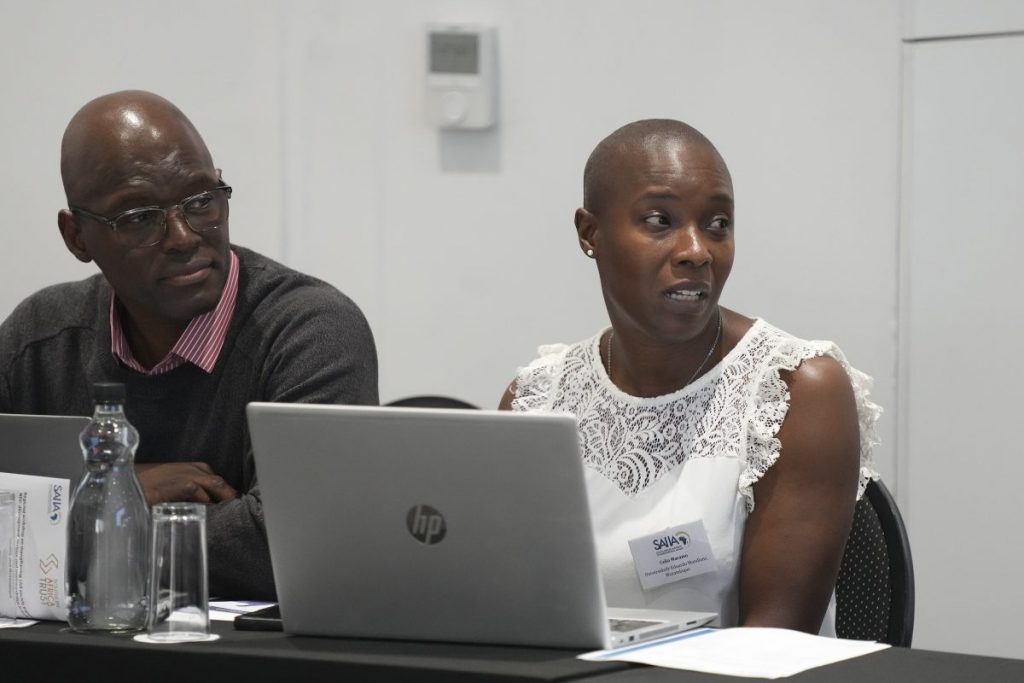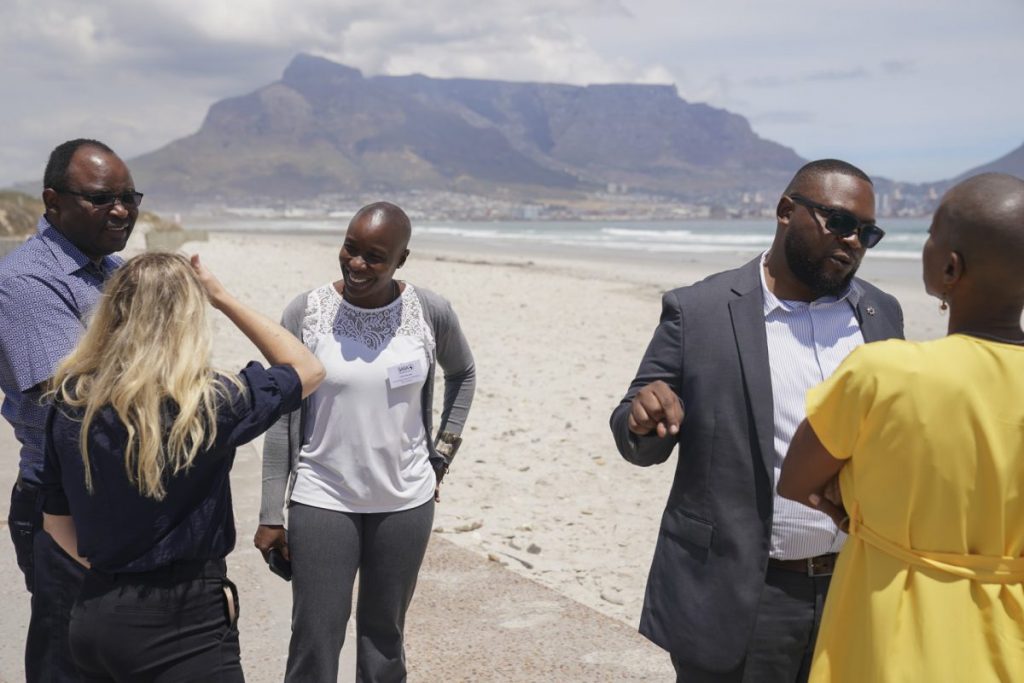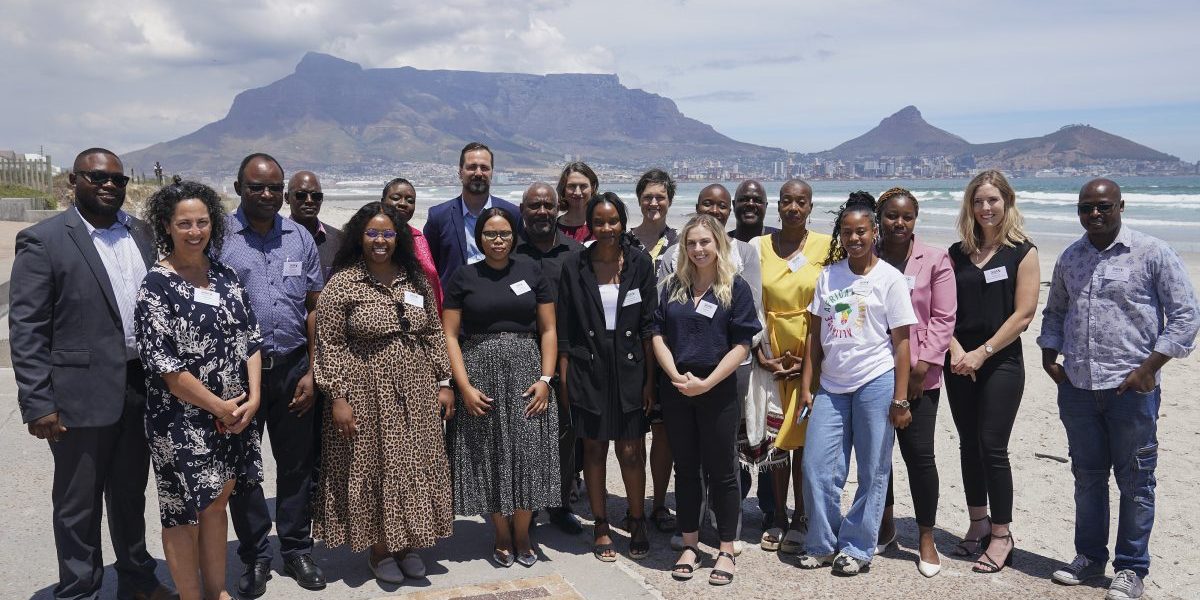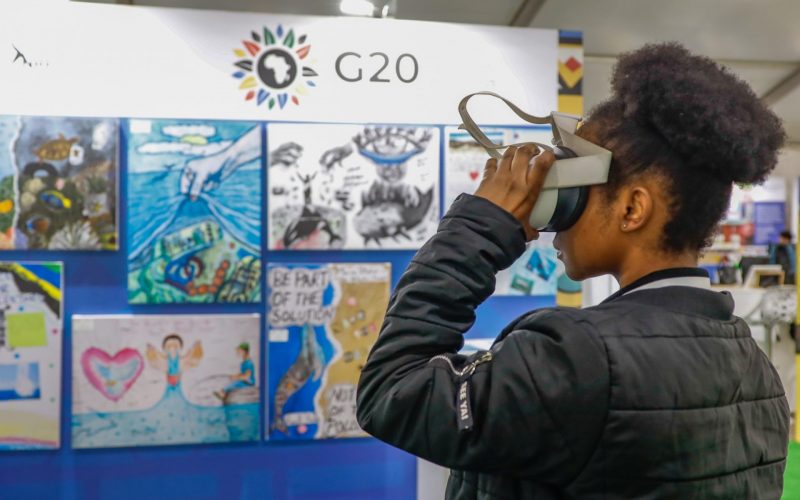In order for these policies reflect the real needs and opportunities across society, and crucially secure buy-in from the communities which they are intended to support, it is essential that climate policy development and implementation processes are inclusive. SAIIA researcher Jordan Mc Lean shares insights from a recent project that sought to support peer learning for inclusive climate policy development in Southern Africa.
UNFCCC, NDCs, COPs… the world of climate policy is full of acronyms and jargon. Can you help orient us?
The United Nations Framework Convention on Climate Change (UNFCCC) is an agreement by Member States of the United Nations that provides the structure through which the global climate response is coordinated. Countries that have signed up to the Convention are referred to as Parties, and every year, usually in late November or early December, they have a huge meeting referred to as the Conference of the Parties (COP). Last year, the United Arab Emirates hosted the 28th Conference of the Parties, or COP28. It was through the UNFCCC negotiations that Parties agreed to the landmark Paris Agreement in 2015. The Paris Agreement establishes a number of key principles and processes, but key was setting the goal of keeping global temperature rise well below 2°C above preindustrial levels and pursuing efforts to limit the temperature increase to 1.5°C above pre-industrial levels.
Another common acronym in the climate policy space is NDC, which stands for Nationally Determined Contribution. NDCs, essentially, are plans that countries draw up to show how they will contribute to achieving the Paris Agreement. These plans are submitted to the UNFCCC. Importantly, recent analysis has shown that the NDCs collectively are not currently ambitious enough to achieve the Paris Agreement climate goals. That means that we have to work together to ensure that NDCs are increasingly ambitious, and of course that countries actually implement the commitments they make within their NDCs.
Tell us more about the specific project SAIIA implemented on inclusive NDCs. How did the project seek to contribute to climate policy development?
It is very important that climate policies, including NDCs, are developed in an inclusive manner. This is not only to ensure that the perspectives and knowledge of diverse stakeholders are incorporated, but also to support buy-in from these stakeholders, which is essential for effective implementation. Local and Indigenous knowledge is often overlooked or actively marginalised in policy processes, so it is particularly important that we pay attention to the needs and aspirations of local communities.
Africa is particularly vulnerable to climate change and, as the climate crisis worsens, poor and rural communities are expected to suffer the brunt of climate disasters. Communities across the continent are reliant on natural resources for their livelihoods. Civil society organisations (CSOs) play a key connecting role between these natural resource-dependent communities and national climate policy. They are uniquely placed to understand the needs, concerns and lived experiences of communities and have the policy knowledge and technical knowledge to communicate this to policymakers. CSOs also occupy an educational role, being able to explain climate policies and their impacts to the communities most affected by them.
SAIIA, along with our research partners at the Zambian Climate Change Network and Eduardo Mondlane University in Mozambique, sought to understand how civil society organisations have influenced the revision of the NDCs and how this influence can be enhanced as countries ramp up their climate action ambitions. The ‘Strengthening Civil Society Voices on Natural Resources and Climate’ project has been supported by the Southern African Trust, a longstanding partner of SAIIA.
The project produced three national assessments (for South Africa, Mozambique and Zambia), which reviewed the NDC revision process of 2020-2021. These insights were enriched by national workshops in each of the three countries, where a range of stakeholders were brought together to discuss lessons from their experience contributing to the NDC revisions. This culminated in a regional workshop which took place in Cape Town in January 2024. The regional workshop was attended by stakeholders from all three countries and provided an important platform for regional lesson sharing. The national reviews, as well as insights received through the workshops, have been captured in a synthesis report and policy briefing that outline ways to improve CSO participation in future NDC revision.

Is there a reason why this particular project has been implemented now?
NDCs are a critical component of achieving the 1.5 °C goal central to the Paris Agreement. As such, countries are required to revise their NDCs every five years and show increasing ambition in the actions they will implement to limit greenhouse gas emissions and bolster their climate resilience.
The first revision process of the NDCs took place over 2020-2021. It was delayed due to the COVID-19 pandemic, which also impacted the way policymakers were able to gather wider inputs on their proposed NDCs during this revision process. For southern Africa this resulted in new forms of connecting with the community (for example through online platforms). While this did have some negative implications (for example, excluding certain marginalized groups who did not have access to online communication tools), it did also show the willingness and ability of government to innovate in the face of difficult circumstances.
The next revision process will take place in 2025 and the final NDC revisions will be submitted at COP30, which will be hosted by Brazil. This means that our project was implemented during an ideal time to reflect on the previous revision process and integrate lessons into the upcoming revisions.
Please tell us about your findings
Throughout the research process and workshops, it was clear that the governments of South Africa, Mozambique and Zambia had made considerable effort to make the NDC revision process inclusive, especially considering the constraints imposed by the COVID-19 pandemic. There are a number of ways to enhance the inclusivity of the process as the 2025 revisions approach.
Six lessons and policy recommendations emerged from our research and workshops:
- CSOs are urged policymakers to consider the climate-development nexus and broader socio-economic context when developing NDCs.
- CSOs called for the use of innovative communication channels to encourage broad-based participation from all stakeholders.
- Multiple engagement mechanisms will create more opportunities for CSOs to engage with the policy development process beyond written submissions.
- Better engagement and coordination between national, provincial and local governments is needed to ensure different geographical and socio-economic needs are not missed.
- Capacitating civil society on climate change, including the Paris Agreement, is required to ensure their understanding of global and national climate policy is comprehensive and empowering, allowing them to better craft their inputs for incorporation into NDCs.
- CSOs called on policymakers to support the accreditation of CSOs with multilateral funding entities to gain access to funding and technical assistance.
These findings are discussed in depth in our research outputs which can be accessed here:
- Inclusive Development of NDCs in Mozambique, South Africa and Zambia: Summary Findings
- Strengthening Civil Society Participation in the NDC Revision Process: Insights from Mozambique, South Africa and Zambia

Does SAIIA have plans to extend this work?
SAIIA has been engaging in climate policy development, including NDCs as well as regional plans such as the Southern African Development Community Climate Change Strategy and the African Union’s Climate Change and Resilient Development Strategy and Action Plan. We are also supporting the development of Long-term Low Emission Climate Resilient Development Strategies, another important climate policy tool.
We are supporting climate work through a range of platforms, such as the Group of 20 (Brazil holds the current presidency and South Africa will take up the presidency of the group in 2025). Another platform we have been providing support to is the African Group of Negotiators Expert Support, a body created to provide scientific expertise, evidence and capacity support to inform a common African position in climate change negotiations.
We believe there is great potential to extend the work we accomplished through this project. We believe strongly in the value of peer learning – it would be extremely valuable to further consolidate our work in South Africa, Mozambique and Zambia on inclusive NDC development and even bring in additional countries from the region. We would welcome engagement from partners who are interested in supporting such work.
For further information or to discuss partnership opportunities, please contact Jordan Mc Lean at Jordan.Mclean@saiia.org.za.








